List of Speakers of the United States House of Representatives
The speaker of the United States House of Representatives is the presiding officer of the United States House of Representatives. The office was established in 1789 by Article I, Section 2 of the U.S. Constitution. The speaker is the political and parliamentary leader of the House, and is simultaneously the body's presiding officer, the de facto leader of the body's majority party, and the institution's administrative head.[1] Speakers also perform various administrative and procedural functions, all in addition to representing their own congressional district. Given these several roles and responsibilities, the Speaker usually does not personally preside over debates. That duty is instead delegated to members of the House from the majority party. Neither does the speaker regularly participate in floor debates. Additionally, the speaker is second in the presidential line of succession, after the vice president and ahead of the president pro tempore of the Senate.[2]
| This article is part of a series on the |
| United States House of Representatives |
|---|
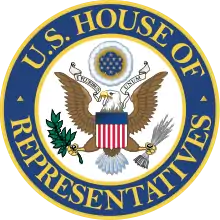 Great Seal of the United States House of Representatives |
|
History of the United States House of Representatives |
| Members |
|
|
| Politics and procedure |
| Places |
The House elects a new speaker by roll call vote when it first convenes after a general election for its two-year term, or when a speaker dies, resigns or is removed from the position intra-term. A majority of votes cast (as opposed to a majority of the full membership of the House) is necessary to elect a speaker.[1] If no candidate receives a majority vote, then the roll call is repeated until a speaker is elected.[3] The Constitution does not require the Speaker to be an incumbent member of the House, although every Speaker thus far has been.[4]
The current speaker of the House, Democrat Nancy Pelosi of California, was elected to a fourth (second consecutive) term in office on January 3, 2021, the first day of the 117th Congress. She is the only woman to have served as speaker. Altogether, 54 individuals, from 23 of the 50 states, have served as Speaker of the House. The number from each state are:
- Eight: Massachusetts;
- Four: Kentucky and Virginia;
- Three: Georgia, Illinois, Indiana, Ohio, Pennsylvania, Tennessee, and Texas;
- Two: Maine, New Jersey, New York, and South Carolina;
- One: Alabama, California, Connecticut, Iowa, Missouri, North Carolina, Oklahoma, Washington, and Wisconsin.
One speaker, James K. Polk, subsequently served as President of the United States, the only one to serve in both offices, and two speakers, Schuyler Colfax and John Nance Garner, later became Vice president. The longest serving speaker was Sam Rayburn – 17 years, 53 days. Elected 10 times, he led the House three times: from September 1940 to January 1947; January 1949 to January 1953; and January 1955 to November 1961. Tip O'Neill had the longest uninterrupted tenure as speaker – 9 years, 350 days. Elected five times, he led the House from January 1977 to January 1987. Theodore M. Pomeroy had the shortest tenure; elected speaker on March 3, 1869, he served one day.
List of speakers
The House has elected a speaker 126 times since 1789:[3] at the start of each of the 117 congresses, plus on 10 occasions when a vacancy arose during a Congress via death or resignation. Of the 54 people who have served as speaker of the House over the past 231 years, 32 served multiple terms, and seven of them served nonconsecutive terms: Frederick Muhlenberg, Henry Clay, John W. Taylor, Thomas Brackett Reed, Joseph W. Martin Jr., Sam Rayburn, and Nancy Pelosi. Altogether, there have been 63 occasions on which a new speaker took office.
As of February 2021 there are four living former speakers of the House: Newt Gingrich, Dennis Hastert, John Boehner, and Paul Ryan. Nancy Pelosi was also among this group, prior to reassuming the office in January 2019.
Notes
- The district listed is the district the speaker represented at the time they were in office, which may be different in different Congresses due to redistricting.
- Multi-ballot election.
- Resigned from office and from Congress.
- Intra-term special election.
- Died in office.
- Frederick Muhlenberg served as speaker twice in the 1790s, before political factions coalesced into formal parties; initially he identified with the pro–administration faction, but later he aligned himself with the anti–administration faction.
- John Taylor served as speaker twice in the 1820s; initially he was as a member of the Democratic–Republican Party, and later, when the party began to fracture, he sided with its pro–Adams faction.
- During James K. Polk's tenure as speaker the Jacksonian bloc amalgamated into the modern Democratic Party.
Timeline
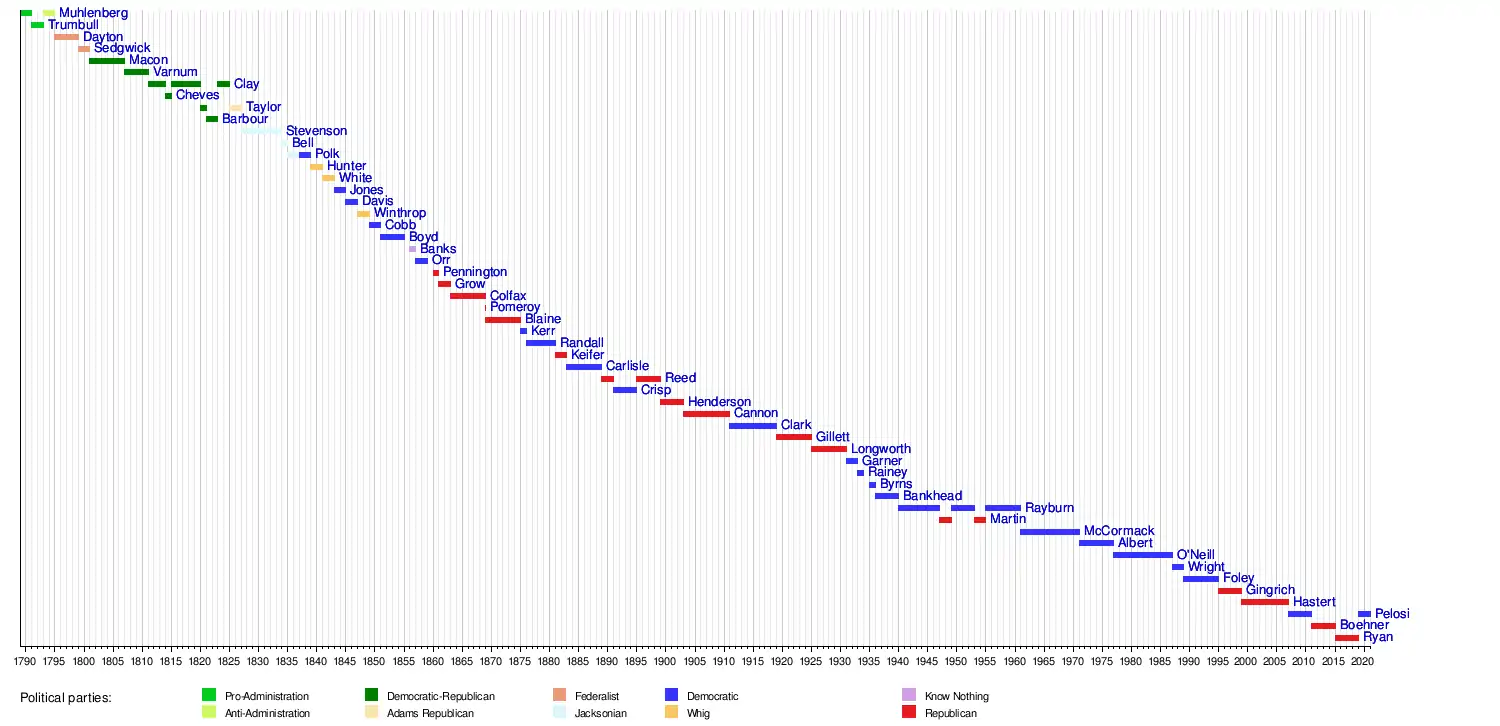
Speakers by time in office
The length of time given below is based on the difference between dates; if counted by number of calendar days all the figures would be one greater. Also, as many speakers were elected multiple times, and to terms that were, in several instances, not consecutive, the length of time given for each speaker measures their cumulative length of incumbency as speaker. Further, time after adjournment of one Congress but before the convening of the next Congress is not counted. For example, Nathaniel Macon was speaker in both the 8th and 9th Congresses, but the eight-month gap between the two Congresses is not counted toward his service. The exact dates of service for each individual speaker is shown in the Term of service column of the above table.
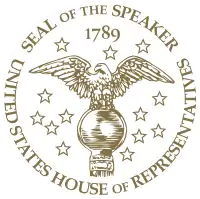
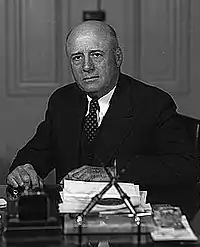
17 years, 53 days (cumulative)
.jpg.webp)
9 years, 350 days
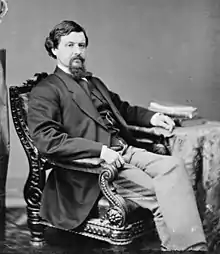
| Rank | Name | Time in office | TE | Year(s) in which elected |
|---|---|---|---|---|
| 1 | Sam Rayburn | 17 years, 53 days | 10 | 1940; 1941; 1943; 1945; 1949; 1951; 1955; 1957; 1959; 1961 |
| 2 | Henry Clay | 10 years, 196 days | 6 | 1811; 1813; 1815; 1817; 1819; 1823 |
| 3 | Tip O'Neill | 9 years, 350 days | 5 | 1977; 1979; 1981; 1983; 1985 |
| 4 | John W. McCormack | 8 years, 344 days | 5 | 1962; 1963; 1965; 1967; 1969 |
| 5 | Dennis Hastert | 7 years, 359 days | 4 | 1999; 2001; 2003; 2005 |
| 6 | Champ Clark | 6 years, 357 days | 4 | 1911; 1913; 1915; 1917 |
| 7 | Nancy Pelosi | 6 years, 33 days | 4 | 2007; 2009; 2019; 2021 |
| 8 | Carl Albert | 5 years, 337 days | 3 | 1971; 1973; 1975 |
| 9 | Joseph Gurney Cannon | 5 years, 285 days | 4 | 1903; 1905; 1907; 1909 |
| 10 | Tom Foley | 5 years, 209 days | 3 | 1989; 1991; 1993 |
| 11 | James G. Blaine | 5 years, 93 days | 3 | 1869; 1871; 1873 |
| 12 | Frederick H. Gillett | 4 years, 341 days | 3 | 1919; 1921; 1923 |
| 13 | John Boehner | 4 years, 297 days | 3 | 2011; 2013; 2015 |
| 14 | Schuyler Colfax | 4 years, 176 days | 3 | 1863; 1865; 1867 |
| 15 | Thomas Brackett Reed | 4 years, 172 days | 3 | 1889; 1895; 1897 |
| 16 | Nicholas Longworth | 4 years, 133 days | 3 | 1925; 1927; 1929 |
| 17 | William B. Bankhead | 4 years, 102 days | 3 | 1936; 1937; 1939 |
| 18 | Andrew Stevenson | 4 years, 83 days | 4 | 1827; 1829; 1831; 1833 |
| 19 | Joseph W. Martin Jr. | 4 years | 2 | 1947; 1953 |
| 20 | Newt Gingrich | 3 years, 361 days | 2 | 1995; 1997 |
| 21 | Nathaniel Macon | 3 years, 317 days | 3 | 1801; 1803; 1805 |
| 22 | John G. Carlisle | 3 years, 267 days | 3 | 1883; 1885; 1887 |
| 23 | Samuel J. Randall | 3 years, 215 days | 3 | 1876; 1877; 1879 |
| 24 | Paul Ryan | 3 years, 66 days | 2 | 2015; 2017 |
| 25 | Frederick Muhlenberg | 3 years, 64 days | 2 | 1789; 1793 |
| 26 | Joseph Bradley Varnum | 3 years, 49 days | 2 | 1807; 1809 |
| 27 | Jonathan Dayton | 3 years, 14 days | 2 | 1795; 1797 |
| 28 | Charles Frederick Crisp | 2 years, 295 days | 2 | 1891; 1893 |
| 29 | James K. Polk | 2 years, 268 days | 2 | 1835; 1837 |
| 30 (tie) |
Linn Boyd | 2 years, 182 days | 2 | 1851; 1853 |
| David B. Henderson | 2 years, 182 days | 2 | 1899; 1901 | |
| 32 | Jim Wright | 2 years, 151 days | 2 | 1987; 1989 |
| 33 | John White | 1 year, 277 days | 1 | 1841 |
| 34 | Galusha A. Grow | 1 year, 243 days | 1 | 1861 |
| 35 | John W. Taylor | 1 year, 198 days | 2 | 1820; 1825 |
| 36 | Henry Thomas Rainey | 1 year, 163 days | 1 | 1933 |
| 37 | Joseph W. Byrns Sr. | 1 year, 153 days | 1 | 1935 |
| 38 | Jonathan Trumbull Jr. | 1 year, 131 days | 1 | 1791 |
| 39 | John Wesley Davis | 1 year, 93 days | 1 | 1845 |
| 40 | Theodore Sedgwick | 1 year, 92 days | 1 | 1799 |
| 41 (tie) |
Philip Pendleton Barbour | 1 year, 90 days | 1 | 1821 |
| John Winston Jones | 1 year, 90 days | 1 | 1843 | |
| 43 | J. Warren Keifer | 1 year, 89 days | 1 | 1881 |
| 44 | Robert Charles Winthrop | 1 year, 88 days | 1 | 1847 |
| 45 (tie) |
James Lawrence Orr | 1 year, 87 days | 1 | 1857 |
| John Nance Garner | 1 year, 87 days | 1 | 1931 | |
| 47 | Robert M. T. Hunter | 1 year, 78 days | 1 | 1839 |
| 48 | Howell Cobb | 1 year, 72 days | 1 | 1849 |
| 49 | Langdon Cheves | 1 year, 44 days | 1 | 1814 |
| 50 | William Pennington | 1 year, 31 days | 1 | 1860 |
| 51 | Nathaniel P. Banks | 1 year, 30 days | 1 | 1856 |
| 52 | John Bell | 275 days | 1 | 1834 |
| 53 | Michael C. Kerr | 257 days | 1 | 1875 |
| 54 | Theodore M. Pomeroy | 1 day | 1 | 1869 |
References
- Forte, David F. "Essays on Article I: Speaker of the House". Heritage Guide to The Constitution. Heritage Foundation. Retrieved March 23, 2019.
- Relyea, Harold C. (August 5, 2005). "Continuity of Government: Current Federal Arrangements and the Future" (PDF). CRS Report for Congress. Washington, D.C.: Congressional Research Service, the Library of Congress. pp. 2–4. Retrieved March 23, 2019.
- "Speaker Elections Decided by Multiple Ballots". history.house.gov. United States House of Representatives. Retrieved September 28, 2016.
- Heitshusen, Valerie; Beth, Richard S. (January 4, 2019). "Speakers of the House: Elections, 1913–2019" (PDF). RL30857. Washington, D.C.: Congressional Research Service. Retrieved March 23, 2019.
![]() This article incorporates public domain material from the United States House of Representatives document: "List of Speakers of the House".
This article incorporates public domain material from the United States House of Representatives document: "List of Speakers of the House".
External links
- Follett, Mary Parker (1909) [First edition, 1896]. The speaker of the House of Representatives. New York, New York: Longmans, Greene, and Company. Retrieved March 18, 2019 – via Internet Archive, digitized in 2007.
- House Document 108–204 – The Cannon Centenary Conference: The Changing Nature of the Speakership, History, nature and role of the Speakership
- "Speaker of the House of Representatives". Official Website, Information about role as party leader, powers as presiding officer
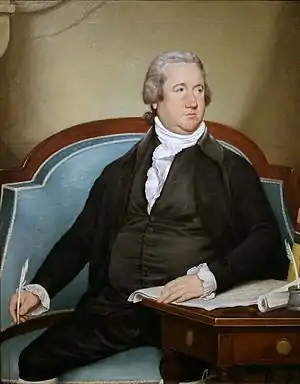
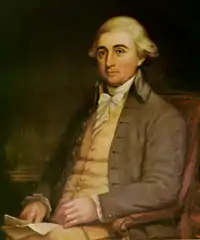
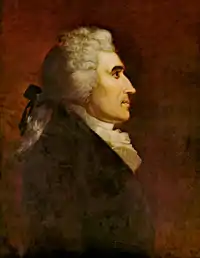
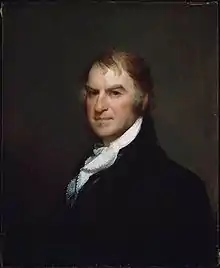
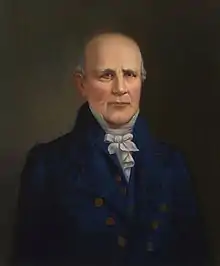
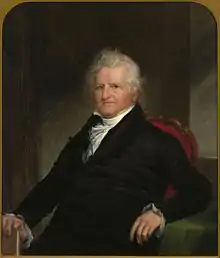
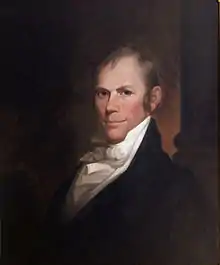
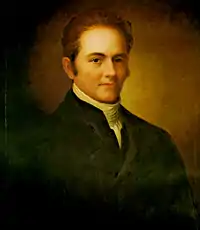

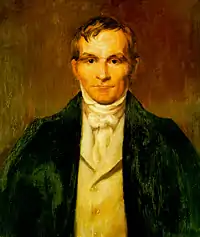
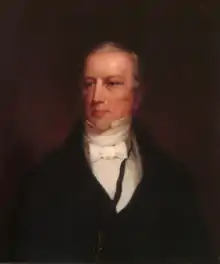
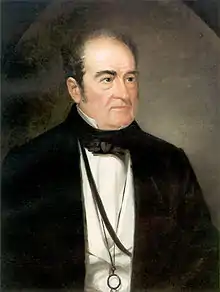
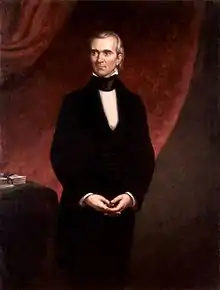
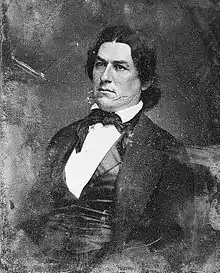
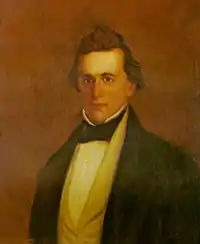
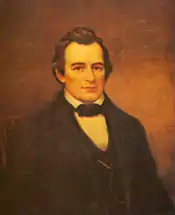
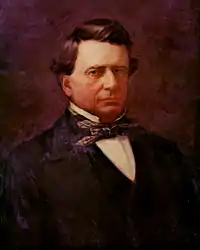
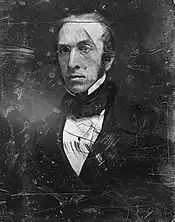
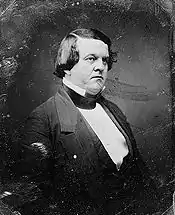
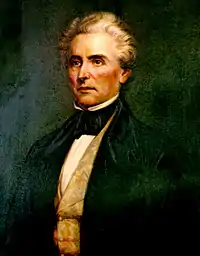
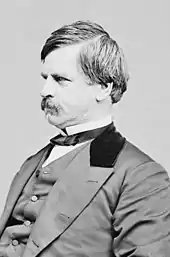

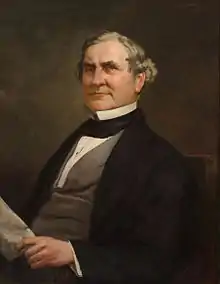
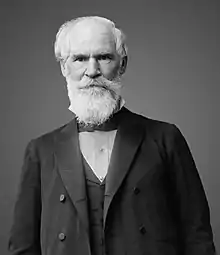
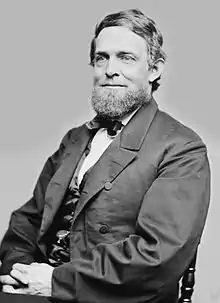
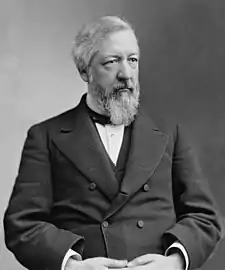

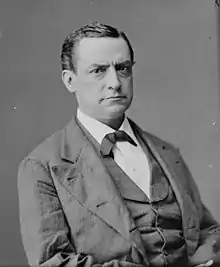
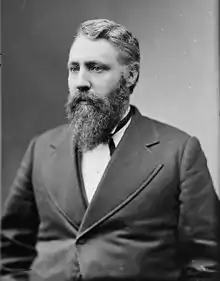
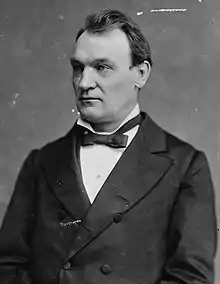
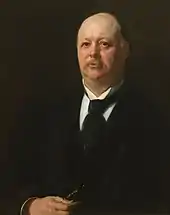
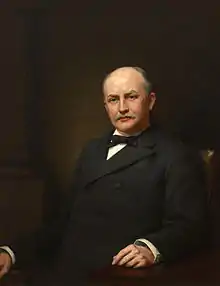

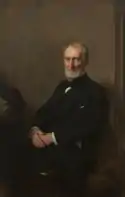
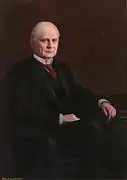
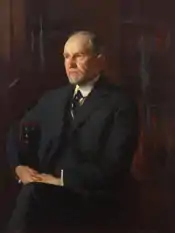


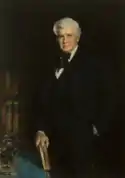

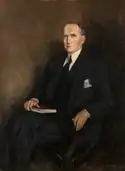
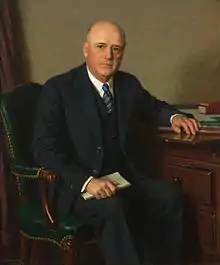
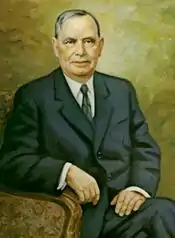

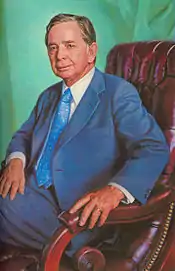
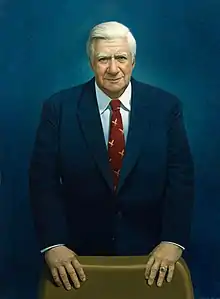
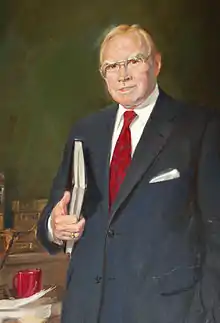
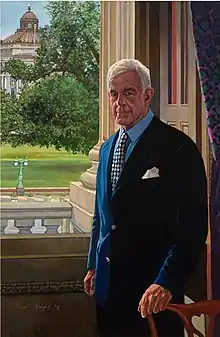
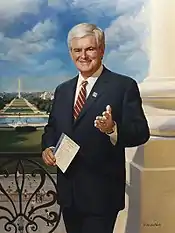
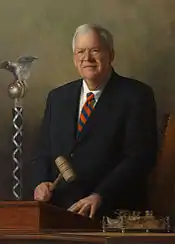
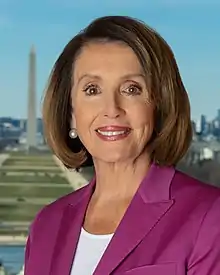
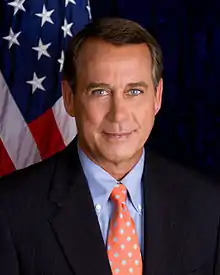
.jpg.webp)